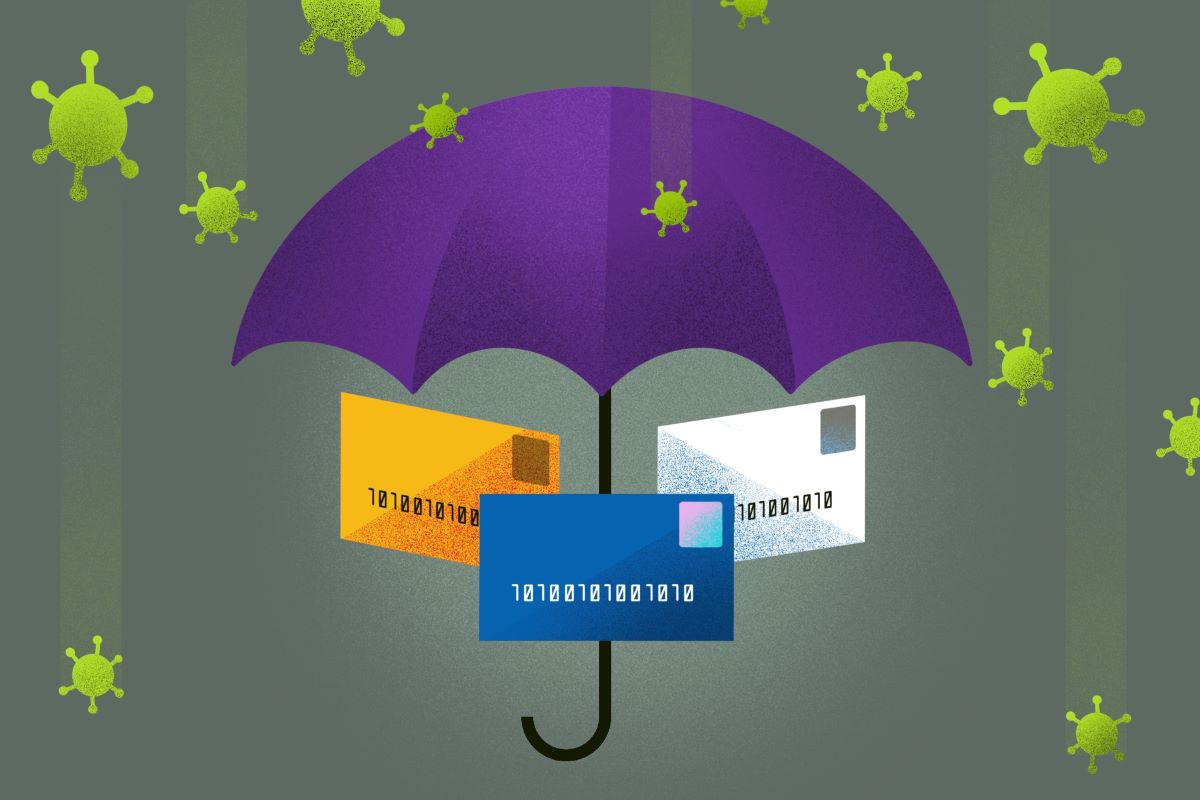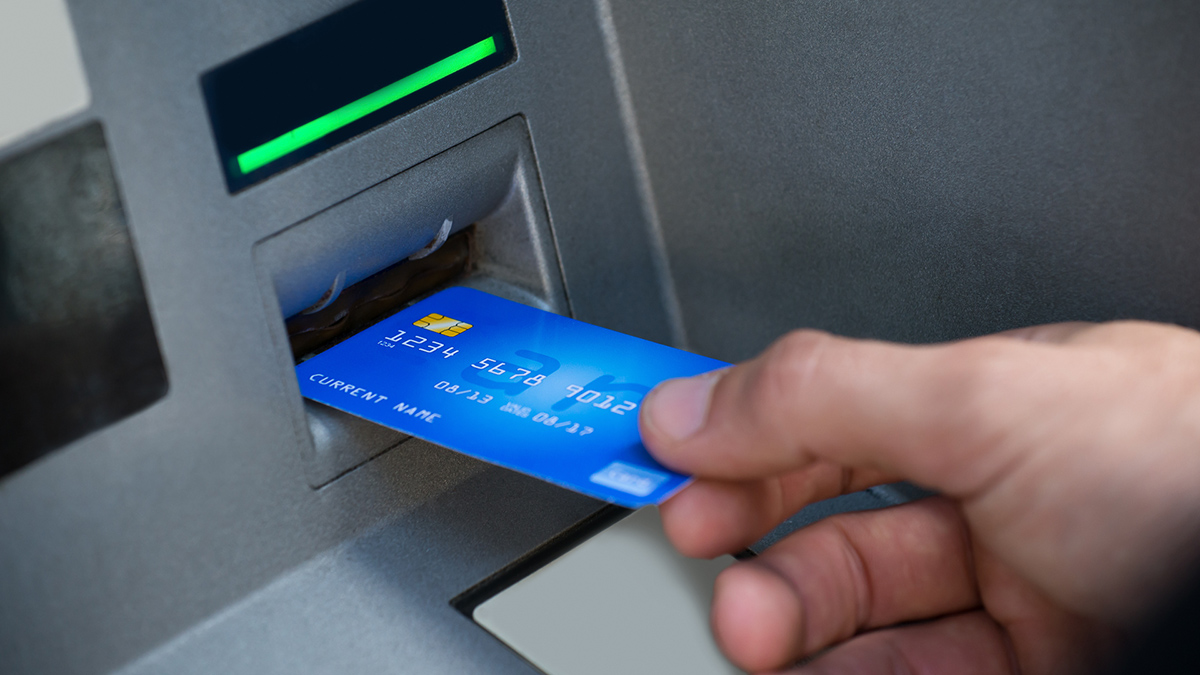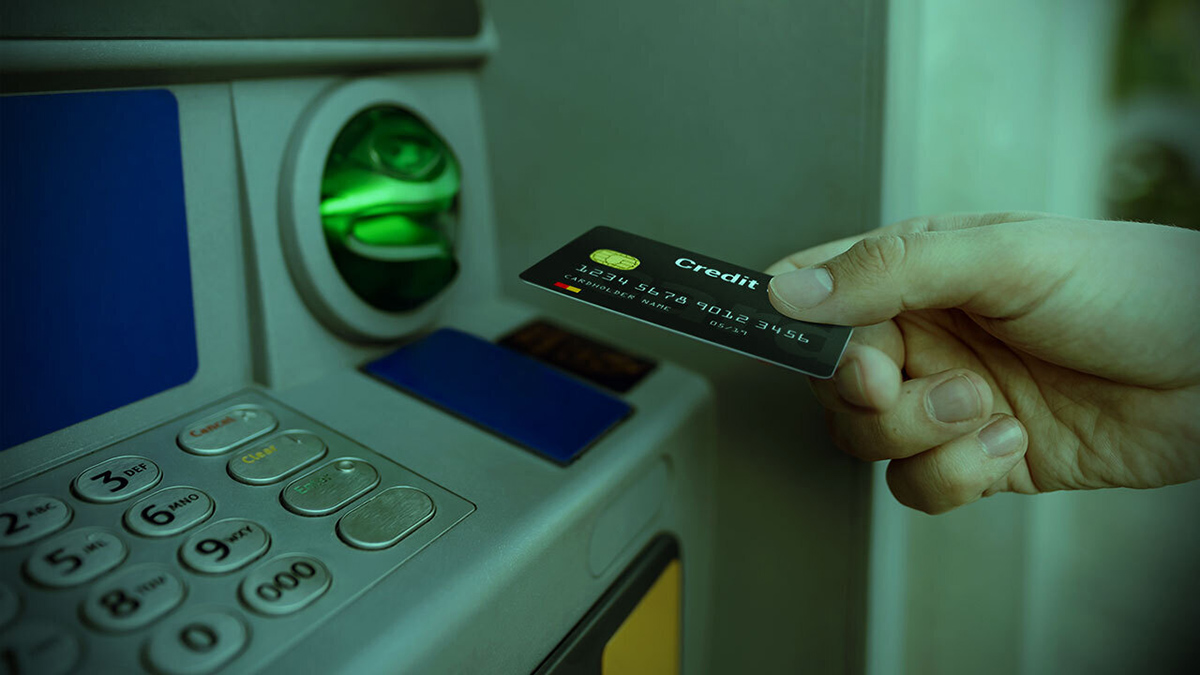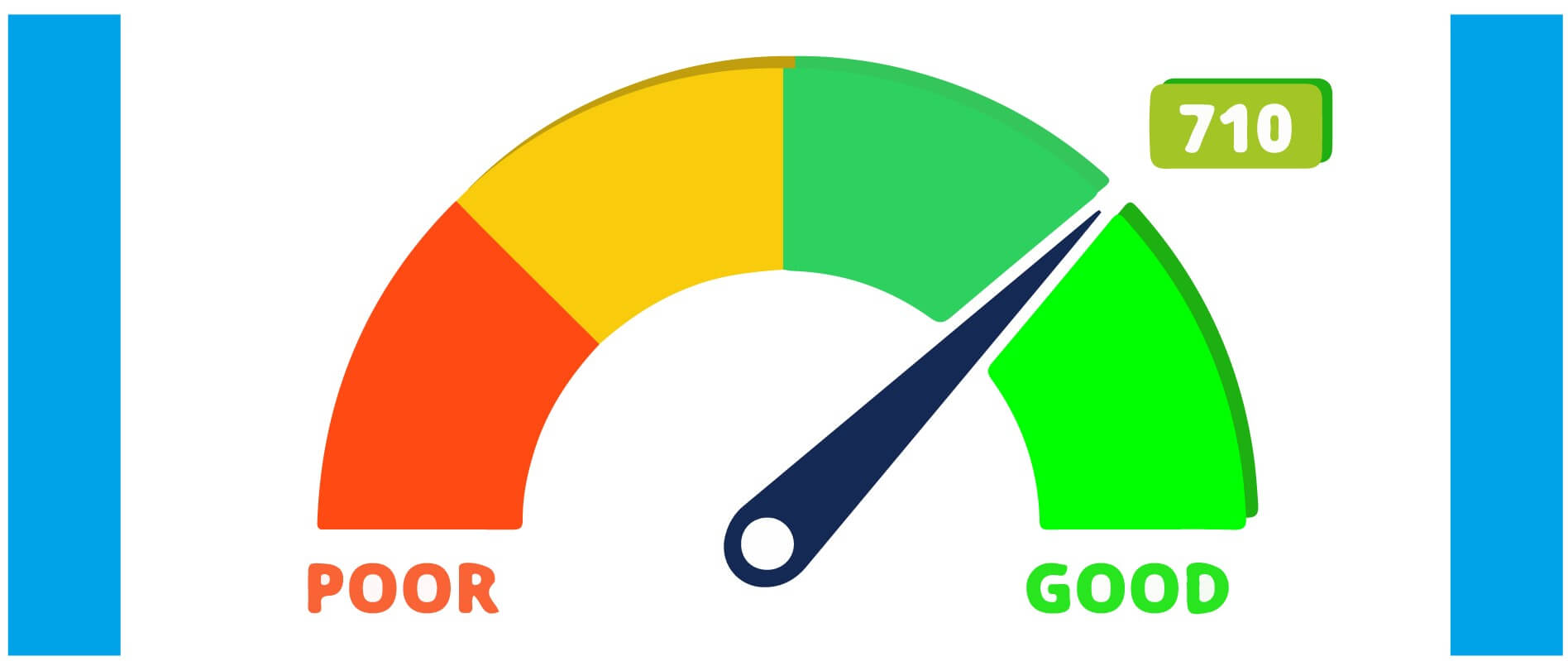

Finance
How To Protect Credit Score During Coronavirus
Published: October 21, 2023
Learn how to protect your credit score during the coronavirus crisis. Discover essential finance tips to maintain financial stability and secure your creditworthiness.
(Many of the links in this article redirect to a specific reviewed product. Your purchase of these products through affiliate links helps to generate commission for LiveWell, at no extra cost. Learn more)
Table of Contents
- Introduction
- Understanding the Importance of Credit Score
- Impact of Coronavirus on Credit Scores
- Steps to Protect Credit Score during Coronavirus
- Pay Your Bills on Time
- Consider Financial Hardship Programs
- Monitor Credit Reports Regularly
- Avoid Taking on Additional Debt
- Utilize Available Credit Responsibly
- Communicate with Creditors
- Be Cautious of Scams and Fraudulent Activities
- Conclusion
Introduction
As the world continues to grapple with the effects of the ongoing COVID-19 pandemic, individuals and businesses alike are facing unprecedented challenges. The global economic slowdown has left many people concerned about their financial stability and the impact it may have on important financial metrics, such as credit scores.
A credit score is a numerical representation of an individual’s creditworthiness and plays a critical role in determining one’s ability to access credit, secure favorable interest rates, and make major financial decisions. It is a reflection of an individual’s financial responsibility and can greatly influence their financial future.
The COVID-19 crisis has had a profound impact on the economy, causing widespread job loss, business closures, and reduced consumer spending. These challenges have the potential to negatively affect credit scores, as individuals may face difficulties in meeting their financial obligations or resort to relying on credit to cover their expenses.
However, it is crucial to understand that protecting one’s credit score during this challenging time is not an insurmountable task. By taking proactive measures and making informed financial decisions, individuals can safeguard their creditworthiness and mitigate the potential negative effects of the pandemic on their credit scores.
In this article, we will explore the importance of credit scores, the potential impact of the COVID-19 pandemic on credit scores, and provide practical steps that individuals can take to protect their credit scores during these uncertain times.
Understanding the Importance of Credit Score
A credit score is a three-digit number that ranges from 300 to 850 and is calculated based on several factors, such as payment history, credit utilization, length of credit history, types of credit used, and new credit applications.
The importance of a good credit score cannot be overstated. It is a key determinant in various financial aspects of your life, including:
- Access to Credit: Lenders use credit scores to assess your creditworthiness when you apply for loans, credit cards, mortgages, or other forms of credit. A higher credit score increases your chances of approval and allows you to access credit at more favorable terms, such as lower interest rates and higher credit limits.
- Interest Rates: A good credit score can save you significant money in the long run. Lenders are more likely to offer lower interest rates to individuals with high credit scores, resulting in lower monthly payments and overall interest costs.
- Housing: Landlords often check credit scores when considering potential tenants. A higher credit score may increase your chances of being approved for a rental property and may even help you negotiate better lease terms.
- Insurance Premiums: Some insurance providers use credit scores as a factor in determining insurance premiums. A lower credit score may lead to higher insurance costs, while a higher credit score might result in more affordable coverage.
- Employment Opportunities: In certain industries, employers may conduct credit checks as part of the hiring process. A poor credit score could potentially impact your chances of securing certain job positions.
Given the significant impact a credit score can have on your financial well-being, it is crucial to understand how to protect and maintain a good credit score, particularly during times of economic uncertainty like the COVID-19 pandemic. By taking proactive steps, you can safeguard your creditworthiness and ensure that your financial future remains secure.
Impact of Coronavirus on Credit Scores
The COVID-19 pandemic has had far-reaching implications on both individuals and the global economy. As businesses shuttered, people lost their jobs, and financial uncertainty grew, credit scores felt the impact. Here are some key ways the pandemic has affected credit scores:
- Financial Hardships: Many individuals have faced financial hardships due to job loss, reduced income, or business closures. As a result, they may struggle to pay their bills and meet their financial obligations, which can lead to late payments and negative marks on their credit reports.
- Increased Credit Utilization: Some individuals turned to credit cards or personal loans to cover their expenses during the pandemic. Increased credit utilization, especially if balances are high in relation to credit limits, can negatively impact credit scores.
- Payment Deferrals: In response to the economic challenges caused by the pandemic, lenders and institutions offered payment deferral options to provide temporary relief to borrowers. While these deferrals can help individuals manage their finances in the short term, they may still have an impact on credit scores if not carefully managed.
- Changing Spending Patterns: With travel restrictions and limited access to certain services, people’s spending habits have changed. Shifts in spending patterns can impact credit scores, especially if individuals are not able to maintain a consistent payment history or if they close or open new credit accounts.
It is important to note that credit bureaus are aware of the challenges brought about by the pandemic and have implemented measures to minimize the negative impact on credit scores. For example, some credit reporting agencies are allowing individuals to add consumer statements to their credit reports to explain any pandemic-related issues that may have affected their creditworthiness.
While the pandemic has undoubtedly created obstacles for individuals in maintaining their credit scores, there are proactive steps that can be taken to protect and improve creditworthiness during these uncertain times.
Steps to Protect Credit Score during Coronavirus
While the coronavirus pandemic has posed challenges to financial stability, there are proactive measures individuals can take to protect their credit scores. By implementing the following steps, you can safeguard your creditworthiness during these uncertain times:
- Pay Your Bills on Time: Timely bill payments are crucial for maintaining a good credit score. Make it a priority to pay your bills promptly, even if you have to adjust your budget or seek assistance through payment plans or financial hardship programs.
- Consider Financial Hardship Programs: Many lenders, credit card issuers, and utility companies have implemented financial hardship programs in response to the pandemic. These programs may offer payment deferrals, reduced interest rates, or waived fees. Contact your creditors and inquire about any available options that can help you manage your financial obligations without negatively impacting your credit.
- Monitor Credit Reports Regularly: Stay vigilant by regularly monitoring your credit reports for any errors, fraudulent activity, or discrepancies. You are entitled to a free credit report from each of the three major credit bureaus (Equifax, Experian, and TransUnion) every year. Reviewing your credit reports can help you identify and address any issues promptly.
- Avoid Taking on Additional Debt: During these uncertain times, it is wise to limit unnecessary expenses and avoid taking on additional debt whenever possible. Think carefully before making new credit applications and consider alternative ways to manage your finances without resorting to credit.
- Utilize Available Credit Responsibly: If you have access to credit, use it wisely and responsibly. Keep credit card balances low and aim to utilize 30% or less of your available credit limit. This demonstrates responsible credit management and can positively impact your credit score.
- Communicate with Creditors: If you are facing difficulties in meeting your financial obligations, reach out to your creditors and explain your situation. Many creditors are willing to work with individuals experiencing financial hardship to find suitable solutions.
- Be Cautious of Scams and Fraudulent Activities: Unfortunately, crisis situations often lead to an increase in scams and fraudulent activities. Be vigilant and protect your personal and financial information. Avoid responding to unsolicited offers and verify the legitimacy of any requests or communications before sharing sensitive information.
By following these steps, you can navigate the financial challenges brought on by the coronavirus pandemic while preserving your creditworthiness. Remember, it is important to remain proactive, stay informed, and seek professional advice if needed. Your credit score is a valuable asset that can help secure your financial future, so take the necessary steps to protect it during these trying times.
Pay Your Bills on Time
One of the most important steps you can take to protect your credit score during the coronavirus pandemic is to ensure that you pay your bills on time. Timely bill payments are a key factor in maintaining a good credit score and demonstrate your reliability as a borrower.
Here are some tips to help you stay on top of your bill payments:
- Create a Budget: Establish a budget that reflects your current financial situation. List your income, prioritize essential expenses, and allocate funds for bill payments. Having a clear budget will help you manage your finances and ensure that you have enough money for your obligations.
- Set Up Payment Reminders: Take advantage of technology and set up payment reminders on your phone or online banking platform. This will help you stay organized and ensure that you don’t miss any payment deadlines.
- Consider Automatic Payments: If you have a steady income and feel confident in your ability to cover your bills, setting up automatic payments can be a convenient option. Just be sure to regularly review your bank statements to ensure accuracy and monitor your account balance.
- Prioritize High-Interest Debts: If you are facing financial constraints, prioritize high-interest debts to minimize interest charges and potential damage to your credit score. By paying off or paying down high-interest debts first, you can save money and improve your overall financial standing.
- Utilize Payment Plans: If you are unable to make the full payment for a bill, contact the creditor or service provider to explore payment plan options. Many companies are offering flexible payment arrangements during these challenging times, which can help you manage your financial obligations without damaging your credit.
Remember, consistent and timely bill payments are a key component of a good credit score. By making bill payments a priority and effectively managing your finances, you can protect your creditworthiness during the coronavirus pandemic.
Consider Financial Hardship Programs
During the coronavirus pandemic, many individuals are facing financial hardships due to job loss, reduced income, or business closures. If you find yourself in a challenging financial situation, it’s essential to explore and take advantage of the financial hardship programs that lenders, credit card issuers, and utility companies may offer.
Here are some steps you can take to navigate financial hardship and protect your credit score:
- Contact Your Creditors: Reach out to your creditors and explain your current circumstances. Many lenders and credit card issuers have implemented financial hardship programs to assist their customers during this difficult time. These programs may offer options such as payment deferrals, reduced interest rates, or waived fees.
- Understand the Terms and Conditions: When considering a financial hardship program, make sure to thoroughly understand the terms and conditions. Take note of any potential impacts on your credit score, payment schedule, and any additional fees or interest that may accrue.
- Request Written Agreements: If you enter into a financial hardship program, it’s important to request written agreements that outline the terms and conditions. This will provide clarity and help you ensure that both parties are on the same page.
- Continue Paying What You Can: If you’re unable to make the full payment, try to pay at least the minimum amount due. This shows your intention to fulfill your obligations, even during challenging times. Partial payments are often better for your credit score than missed payments or late payments.
- Stay in Communication: Keep the lines of communication open with your creditors. If your situation changes or you encounter any difficulties, reach out to them promptly. They may be able to offer additional solutions or adjustments to your financial hardship program.
It’s important to remember that entering a financial hardship program may have implications for your credit score. While some programs may not directly impact your score, others may have an effect. Be sure to discuss this with your creditors and understand how participation in a financial hardship program may impact your creditworthiness.
By taking advantage of available financial hardship programs and communicating with your creditors, you can manage your financial obligations effectively and protect your credit score during the coronavirus pandemic.
Monitor Credit Reports Regularly
Regularly monitoring your credit reports is a crucial step in protecting your credit score, especially during the coronavirus pandemic. By reviewing your credit reports, you can identify any errors, detect fraudulent activity, and ensure that your credit information is accurate.
Here are some tips to help you effectively monitor your credit reports:
- Check Your Credit Reports: Take advantage of your right to obtain a free credit report from each of the three major credit bureaus (Equifax, Experian, and TransUnion). You can access these reports online, by phone, or by mail. Review each report carefully to identify any discrepancies or unfamiliar accounts.
- Look for Errors: Pay close attention to the information provided in your credit reports, including your personal details, account balances, payment history, and credit inquiries. If you spot any errors or inaccuracies, promptly dispute them with the respective credit bureau to have them corrected. This can help prevent any negative impact on your credit score due to incorrect information.
- Monitor for Fraudulent Activity: Check your credit reports regularly to detect any signs of fraudulent activity, such as unauthorized accounts or suspicious transactions. If you notice any fraudulent activity, report it immediately to the credit bureau and take steps to protect your identity.
- Consider Credit Monitoring Services: There are various credit monitoring services available that can provide you with real-time alerts regarding changes to your credit report. These services can notify you of new accounts, credit inquiries, or other significant changes that may impact your credit score.
- Review Your Credit Utilization: Pay attention to your credit utilization ratio, which measures the amount of credit you are using compared to your credit limits. A high credit utilization ratio can negatively impact your credit score. Aim to keep your credit utilization below 30% and consider paying down high balances.
- Monitor Credit Inquiries: Keep an eye on any credit inquiries listed on your report. If you notice unfamiliar inquiries, it could be a sign of potential fraud or identity theft.
- Stay on Top of Changes: By regularly monitoring your credit reports, you can be aware of any changes that may impact your credit score. This allows you to take appropriate action and address any issues before they escalate.
Remember, monitoring your credit reports regularly is an essential part of maintaining good credit health. By being proactive and staying informed about your credit history, you can protect your credit score during the coronavirus pandemic and beyond.
Avoid Taking on Additional Debt
During times of financial uncertainty, it is crucial to be cautious about taking on additional debt. While it may be tempting to rely on credit cards or loans to cover expenses, accumulating more debt can have a negative impact on your credit score and overall financial well-being.
Here are some strategies to help you avoid taking on unnecessary debt:
- Create a Realistic Budget: Evaluate your income and expenses to create a budget that reflects your current financial situation. Identify areas where you can cut back on expenses and allocate funds towards essential needs.
- Build an Emergency Fund: Establishing an emergency fund can help provide a financial safety net and reduce the need to rely on credit during unexpected circumstances. Aim to set aside a portion of your income regularly to build up your emergency fund.
- Explore Alternative Financial Resources: Before resorting to high-interest credit cards or loans, consider other sources of financial assistance. Research available grants, government assistance programs, or community resources that may provide temporary relief for your financial needs.
- Reduce Discretionary Spending: Evaluate your discretionary expenses, such as dining out or entertainment, and find ways to cut back. By prioritizing essential needs and minimizing unnecessary spending, you can reduce the temptation to rely on credit for non-essential purchases.
- Use Cash or Debit Instead of Credit: When making purchases, consider using cash or your debit card instead of credit. This can help you stay within your budget and avoid unnecessary debt accumulation.
- Explore Low-Interest or 0% Interest Financing: If you do need to make a large purchase, consider options that offer low-interest or 0% interest financing. However, be sure to read the terms and conditions carefully and understand the potentially high interest rates that may apply if you do not pay off the balance within the promotional period.
- Focus on Debt Repayment: If you already have existing debt, prioritize paying it down. Allocate extra funds towards your debt payments to reduce your overall debt load and improve your credit utilization ratio.
By being mindful of your spending, exploring alternative financial resources, and focusing on debt reduction, you can avoid taking on unnecessary debt and protect your credit score during the coronavirus pandemic.
Utilize Available Credit Responsibly
While it’s important to be mindful of taking on additional debt during the coronavirus pandemic, it’s equally important to utilize the credit you already have responsibly. Responsible credit utilization is a key factor in maintaining a healthy credit score. Here are some tips to help you utilize available credit responsibly:
- Keep Credit Card Balances Low: Aim to keep your credit card balances low in relation to your credit limits. High credit utilization can negatively impact your credit score. Ideally, try to utilize 30% or less of your available credit at any given time.
- Pay the Balance in Full: Whenever possible, pay your credit card balance in full each month. This demonstrates responsible credit management and avoids unnecessary interest charges.
- Avoid Opening Unnecessary Credit Accounts: While it can be tempting to open new credit accounts, especially if they offer appealing rewards or discounts, avoid opening new accounts unless absolutely necessary. Opening multiple accounts within a short period can negatively impact your credit score.
- Maintain Unused Credit Cards: Closing unused credit card accounts may seem like a good idea, but it can actually shorten your credit history and increase your credit utilization ratio. Instead, keep these accounts open and consider making small, occasional purchases to keep them active and in good standing.
- Regularly Review Credit Card Statements: Take the time to review your credit card statements each month. Look for any errors, unauthorized charges, or suspicious activity. If you identify any discrepancies, report them to your credit card issuer immediately.
- Avoid Excessive Credit Inquiries: Be cautious when applying for new credit, as each application typically results in a credit inquiry. Too many inquiries within a short period can negatively impact your credit score. Only apply for credit when necessary and be selective about the types of credit you pursue.
- Use Different Types of Credit: A diverse credit profile can be beneficial for your credit score. Consider using a mix of credit types, such as credit cards, loans, and mortgages, responsibly. However, do not take on additional credit solely for the purpose of diversifying your credit profile.
By utilizing available credit responsibly, you can maintain a healthy credit score and demonstrate to lenders that you are a responsible borrower. Remember to stay within your means and make timely payments to protect your creditworthiness during the coronavirus pandemic.
Communicate with Creditors
During times of financial uncertainty, it is essential to open lines of communication with your creditors. Many lenders, credit card issuers, and service providers understand the challenges individuals are facing due to the coronavirus pandemic and are willing to work with you to find suitable solutions. Here’s why communication with creditors is important and how you can navigate these conversations:
Why Communication is Important:
- Financial Assistance: By communicating your financial situation to your creditors, you give them an understanding of your challenges. They may be able to offer financial hardship programs, deferment options, or reduced interest rates to help you manage your obligations.
- Protecting Your Credit: By reaching out to your creditors, you can explain any temporary difficulties you’re facing and potentially prevent negative impacts on your credit report. This can help protect your credit score in the long run.
- Gaining Clarity: Speaking with your creditors can provide clarity on payment deadlines, options for reducing monthly payments, or any available repayment plans. This allows you to make informed decisions and create a more manageable financial plan.
- Building a Positive Relationship: Establishing open communication can help maintain a positive relationship with your creditors. This can be beneficial if you need assistance in the future or if you require flexibility in your payment arrangements.
How to Communicate effectively with Creditors:
- Initiate Contact: Reach out to your creditors proactively. Explain your current financial situation and any specific challenges you are facing due to the pandemic. Express your willingness to pay but highlight any difficulties you may have in meeting your regular obligations.
- Be Prepared: Have all relevant information ready, such as your account details, recent payment history, and any supporting documentation regarding your financial hardship. This way, you can provide accurate information and have a productive conversation with your creditors.
- Listen and Ask Questions: Be attentive and actively listen to your creditor’s response. Ask questions to ensure you understand the available options and any potential impacts on your credit or future payments.
- Keep Records: Document all communications with your creditors, including dates, names of representatives, and details of the discussion. This helps create a record of the agreement or arrangement made between you and your creditors.
- Honor Your Commitments: If you reach an agreement or arrangement with your creditors, make sure to honor your commitments. Make payments as agreed and notify them promptly of any changes to your circumstances that may affect your ability to fulfill the agreement.
Remember, creditors are more likely to work with you if you communicate openly and honestly. By establishing effective communication, you can find mutually beneficial solutions for managing your financial obligations during the coronavirus pandemic.
Be Cautious of Scams and Fraudulent Activities
During unprecedented times like the coronavirus pandemic, scammers and fraudsters often attempt to take advantage of individuals who may already be financially vulnerable. It is crucial to stay informed and be cautious of potential scams and fraudulent activities that could harm your credit and financial well-being. Here are some key tips to protect yourself:
Stay Vigilant:
- Be Skeptical: Question any unsolicited communications, whether through phone calls, emails, or texts, especially if they ask for personal or financial information. Legitimate organizations would not typically request sensitive information in this manner.
- Verify the Source: When receiving any communication claiming to be from a financial institution or creditor, independently verify its authenticity. Look up the official contact information of the organization and reach out to them directly to confirm if the communication is legitimate.
- Watch for Red Flags: Be wary of any request for upfront payments, payment through unconventional methods (such as gift cards or wire transfers), or promises of guaranteed credit or loan approvals regardless of credit history. These are often signs of fraudulent activity.
- Protect Personal Information: Safeguard your personal and financial information. Avoid sharing your social security number, banking details, or credit card information unless you are certain of the recipient’s trustworthiness and the legitimacy of the request.
Maintain Security Measures:
- Use Strong Passwords: Create unique, strong passwords for your online accounts and update them regularly. Avoid using easily guessable information, like your name or date of birth, and consider using a password manager to securely store your passwords.
- Enable Two-Factor Authentication (2FA): Activate 2FA whenever possible to provide an additional layer of security for your online accounts. This typically involves receiving a verification code via text message or a specialized app when logging in.
- Regularly Monitor Your Accounts: Keep a close eye on your bank statements, credit card transactions, and other financial accounts for any unauthorized or suspicious activity. Report any discrepancies to your financial institution immediately.
- Use Secure Websites: When making online purchases or accessing sensitive financial information, ensure that the websites you use are secure. Look for the padlock symbol in the URL bar and ensure that the website’s URL begins with “https://” to indicate a secure connection.
Report Suspected Fraud:
- Contact Your Financial Institutions: If you suspect any fraudulent activity related to your credit or financial accounts, contact your financial institution or creditor immediately. They can offer guidance on the next steps to take and help protect your accounts.
- File a Complaint: If you have fallen victim to a scam or fraudulent activity, report it to the appropriate authorities. Contact your local law enforcement agency and file a complaint with the Federal Trade Commission (FTC) at ftc.gov/complaint.
By staying vigilant, protecting your personal information, and promptly reporting any suspected scams or fraudulent activities, you can protect your credit score and financial well-being during the coronavirus pandemic.
Conclusion
Protecting your credit score during the coronavirus pandemic is essential for maintaining financial stability and ensuring future opportunities. While the pandemic has presented unique challenges, proactive measures can be taken to safeguard your creditworthiness.
By paying your bills on time, considering financial hardship programs, monitoring your credit reports regularly, avoiding unnecessary debt, utilizing available credit responsibly, communicating with creditors, and staying vigilant against scams, you can protect your credit score and financial well-being.
Remember, maintaining a good credit score offers numerous benefits, such as easier access to credit, lower interest rates, and increased financial opportunities. By following the steps outlined in this article, you can navigate the uncertainties of the pandemic and emerge with a solid credit foundation.
However, it’s important to recognize that everyone’s financial circumstances are unique. Consider consulting with a financial advisor or credit counseling agency for personalized advice based on your specific situation.
During these challenging times, taking control of your financial health and protecting your credit score can provide peace of mind and set you on a path towards a brighter financial future.














